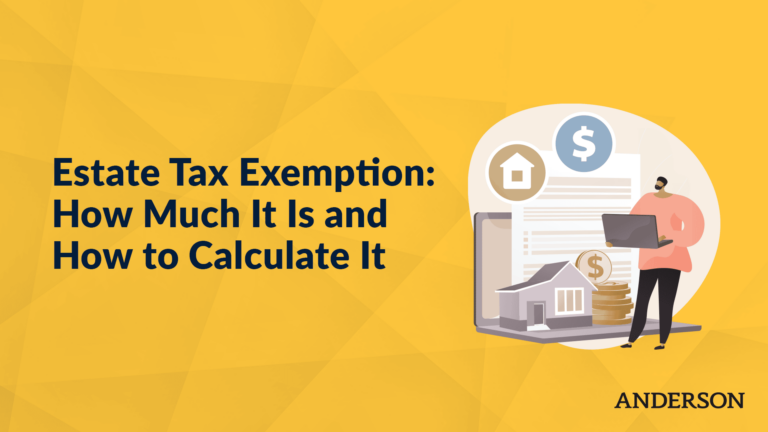Retirement is one life event that is unavoidable. Eventually, you will need or want to leave the workforce. The question is whether or not you’ll be ready—financially.
8 Reasons Why Retirement Planning is Important
- Financial Security
- Pay Less Taxes
- More Enjoyable Retirement
- Life is Unexpected
- Make Better Decisions Before Retirement
- You Won’t be a Burden
- You’ll be Able to Give Back
- You’ll Have a Better Marriage
Is Social Security Enough for Retirement?
If you’re like most Americans, you might assume that Social Security will provide a decent income in your golden years. Unfortunately, that isn’t quite true. In fact, as of 2022, the average Social Security benefit payment for a retired worker comes out to around $1,657 per month.
It’s true that the amount of your monthly benefit payment is, in part, dependent on your work history, earnings, and when you retire; so that in some cases, recipients can collect as much as $4,194 per month. However, in almost every case, Social Security payments are not going to be enough to live on, especially in comparison to your former income. You need to put a retirement plan into place to supplement the return of FICA taxes you paid over the course of your working life.
If you are an employee of a company with more than 100 employees, there is a good chance they have an employer-sponsored retirement plan. This retirement benefit usually accompanies other benefits, like health insurance. This type of retirement savings plan usually involves allocating a portion of your paycheck towards a mutual fund or portfolio of mutual funds.
If you are self-employed, you can still have an individual retirement arrangement, like an SEP IRA (self-employed independent retirement account). However, merely allocating a portion of your income towards the financial goal of a secure retirement is often not enough. Your investment objectives should consider estate planning and the tax implications of the retirement income you will eventually be taking when you hit retirement age—whether that means your retirement goals are an early retirement or to stay in the workforce longer.
The average retirement age in America is 64 years for men and 62 for women. That’s an additional consideration in terms of retirement security because the retirement system is set up for Social Security benefits to increase the longer you stay in the workforce.
If you can wait until you are 70 to retire, it will maximize your benefits. But most people are in a state of retirement readiness before that. There may be other factors to consider as well, such as the type of retirement plan you have and whether the organization you work for offers a pension or service credit. For these reasons, it’s good to discuss these considerations with a financial professional.
Free Strategy Session with an Anderson Advisor
Receive a detailed risk assessment to assist in lowering problem areas that could wipe out all of your assets with one wrong move. Speak with an Anderson Professional Advisor to get your FREE Strategy Session.
Limited-Time Offer: ($750 value.)
8 Reasons Why Retirement Planning is Important
There are many benefits to retirement planning, including:
1. Financial Security
The main reason retirement planning is important is that it will provide you and your loved ones with financial security. As mentioned, Social Security is not likely to sufficiently provide for you during retirement, especially as people live longer lives.
In some cases, people need to leave the workforce earlier than expected, either because they can’t physically work, or because they’re burned out. The financial security of a sizable nest egg achieved with foresight and consistency will help you feel better about your personal finances in retirement. You won’t have to make choices from a place of desperation when you know that your individual retirement account or company retirement account is set up to take care of you and your family in the future.
2. Pay Less Taxes
If you work with a tax advisor on your retirement plan, it can be structured to minimize the amount of taxes you’ll pay on the money you’ve saved. While you’re working and contributing to your retirement plan, contributions can be tax deductible, which means paying less taxes on your income.
You will want to consider the implications of a tax-deferred retirement account, like a pension plan and/or a 401(k), versus a tax free retirement account like a Roth IRA. Do you want to have your income taxed when it becomes retirement income? Or would you rather contribute to your retirement account after income tax has been levied on your wages and earnings? While the answer may seem straightforward, it can get complicated, especially if you will have multiple sources of income like annuities, pensions, and service credits. There are also considerations to make in terms of the annual contribution limit to your retirement accounts.

3. More Enjoyable Retirement
If you have to worry about money during retirement, it’s not going to be an enjoyable experience. For most people, retirement is the time when they can finally check things off their bucket list, especially as it relates to traveling and seeing the world.
If you’ve planned ahead, this type of disposable income becomes possible. You’ll also have more leeway when it comes to you want to live. For some that retire, it might mean selling their home and moving to a place with sunnier weather. For others, it might mean getting a reverse mortgage to hold on to a family property. Whatever the case may be, speaking with a tax advisor about the future can make retirement more enjoyable.
It’s no joke to say that some retirees are living off canned foods and having to decide between paying for medication or paying for cable. If you make the investment in planning for your retirement now, you won’t have to be one of them.
4. Life is Unexpected
People are living longer, which means retirement is getting longer for many Americans. And as people age, there tends to be an increase in surprise expenses. A partner may develop a condition that necessities rehabilitation, full time care, or nursing home care. Someone might need an unexpected surgery, or need medications not covered by Medicare.
Speaking of Medicare, navigating the landscape of this government-sponsored insurance that kicks in at age 65 can be complicated, so that should be part of your retirement planning discussion. Having a financial plan in place can literally be the difference between having and not having the money you need to stay healthy. You do not want to have to turn to financing options like a credit card or personal loan when you hit retirement, especially because you no longer have a work-generated income stream to pay debts off. Having a nest egg in place is the best solution.
5. Make Better Decisions Before Retirement
When your future is more secure, your present will be as well. Without a retirement plan in place, if you are saving up for retirement in a haphazard way (say, such as saving spare change in a piggy bank and dumping it into a savings account every few months) you are far more likely to use and abuse those savings than if you have a concrete and inviolable plan.
Additionally, you will be better able to assess major life decisions, like whether or not you can switch jobs, start your own business, or purchase a vacation home. There is also a certain benefit of feeling financially secure that helps people make better decisions in the present moment. If you don’t believe it, just think about how you might feel if you were heavily in debt (especially credit card debt). Just as being trapped under the burden of punitive interest payments makes it hard to think and plan clearly, but having a sizable nest egg for the future will feel like a breath of fresh air during your working years.
6. You Won’t be a Burden
There’s no shame in relying on family members when you really need them. However, in America there is a whole spectrum of opinions on appropriate boundaries with extended family members and in-laws.
You cannot (or should not) expect to rely on your children to take care of you financially or in actuality. With a retirement plan in place, you won’t have to. It’s important to keep in mind that by the time you retire, your children may have children of their own that they need to support, which means that if they also need to support you, you’re putting them into something popularly called the Sandwich Generation—a group “sandwiched” between the financial responsibility of caring for their children and caring for their parents.
7. You’ll be Able to Give Back
One of the most rewarding parts of retirement is leaving behind a legacy (or knowing that you will be able to leave one); not only by passing money on to your children (if applicable), but also by passing it on to charitable causes you care about. With a retirement plan in place, you’ll have more money to give as you get ready to leave a legacy.
8. You’ll Have a Better Marriage
Having a retirement plan in place may not be the thing that fixes your marriage, but it can certainly help. As you might guess, politics, intimacy, child rearing, and money are among the biggest instigators of arguments in a married couple.
What if one person wants to retire at 65, and the other wants to wait until age 70 so they can max out Social Security? Having a retirement plan crafted with the assistance of a tax advisor can provide a non-emotional, rational space to discuss individual and shared goals and come to an amenable compromise.
How to Start Planning for Retirement
You can read books on the topic of retirement and browse through internet articles, but absolutely nothing beats the power of working with a retirement planner who can get to know you and your goals personally.
At Anderson Advisors, we’ve worked with many types of people in a wide range of financial situations. We know that crafting a retirement plan is an ongoing process that lasts decades, and requires attentiveness throughout. Don’t put the financial security of your golden years off any longer—schedule a free consultation with an Anderson expert today!
Free Strategy Session with an Anderson Advisor
Receive a detailed risk assessment to assist in lowering problem areas that could wipe out all of your assets with one wrong move. Speak with an Anderson Professional Advisor to get your FREE Strategy Session.
Limited-Time Offer: ($750 value.)











